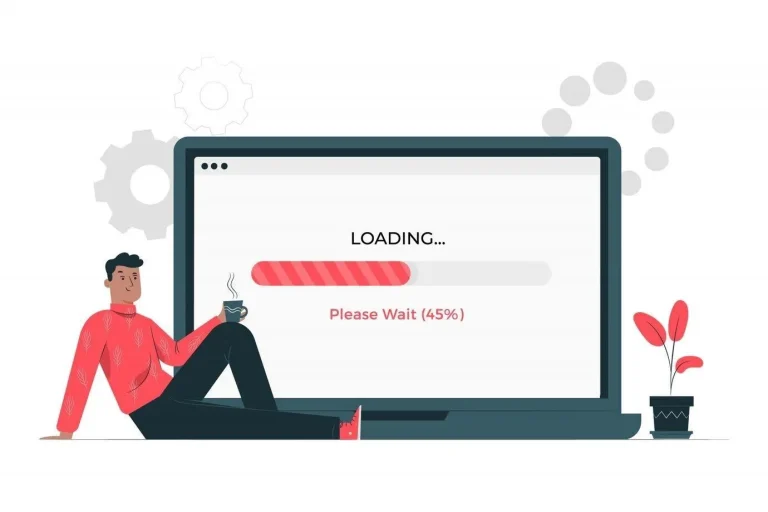Speed is, quite simply, an essential aspect of the internet. The faster it loads, the better the user experience. A study by Akamai found that the number-one reason for abandoning a mobile website was “too slow.”
If you think about it, as the internet goes mobile, speed becomes even more integral to the success of publishers — and as a publisher, you must recognize the need for websites that load faster. In this article, we will share with you why page speed is important, how it relates to your SEO and ad revenue, and what you can do to improve optimize page loading speed.
Table of Contents
Why is page speed important for publishers?
Speeding up the website’s load time is a priority for any publisher. When the site loads too slowly, visitors become impatient and close the page. Google also considers page speed when analyzing the search results. It recognizes the websites that load quickly and rewards them with higher rankings.
In fact, with Core Web Vitals, Google now incorporates page load time as part of its ranking algorithm. So, if you aren’t optimizing your web page speed and making sure your site loads as fast as possible, then you’re overlooking a big opportunity to increase the number of visitors coming to your site and the ad revenue. How does ad revenue get affected by page speed?
According to web.dev, a delay of 1 sec reduces the ad impressions by 1.1% for mobile and 1.9% for desktop respectively. Reduced ad impressions mean lowered ad revenue. We’ve discussed how page speed affects ad revenue in this detailed guide.
How to measure the loading speed of a website?
No doubt that there’s a growing awareness of just how important page speed is to a site’s overall performance. This is accompanied by an equal amount of confusion as to what exactly is causing a page to load slowly, and how to identify and optimize the factors behind it.
Said that there are various tools available to check the speed of the website and optimize it for fast loading. For example,
- PageSpeed Insights
- Lighthouse
- GTMetrix
- Pingdom
- Webpage Test
- Chrome DevTools
While these tools provide enough information about how pages and ads affect the loading speed, Publisher Ads Audits for Lighthouse and Google Ad Manager Ad Speed Report dive deeper into the performance of ads on a website.
Not only do they provide what’s causing latency in the ad set-up, but they also provide suggestions on how to improve. We’ve explained how to use these tools in detail here.
Tips to optimize the page loading speed
Once you fully grasp the importance of page speed and how to measure it, it’s time to improve it. Let’s take a look at five ways to make your pages load faster.
- One of the easiest ways to speed up your site is by enabling browser caching. First off, what is that? Well, we’re glad you asked. Typically when we browse a website, it makes requests to the server to get information (such as images, CSS/JavaScript files, etc). When we enable browser caching this means the browser has already requested this information and stored it in its cache.
- Asynchronous and defer loading help to improve your website performance because the browser can download other assets in parallel, while JavaScript and CSS load. This improves the page load speed because the rendering of your website doesn’t have to wait for all of these elements to become available.
- CSS, JavaScript, and HTML should all be minified to reduce page load speed. When downloading multiple files, the longer it takes for each file to download, the longer it takes for the entire page to download. Minifying CSS makes it easier for browsers to process the code and therefore pages will load faster.
- Get started with lazy loading. It is a technique that aims to reduce the time your visitors need to wait until an image, video, or ad loads. The fact that the web elements will show up only when they’re likely to be visible lets visitors go through most of your page without noticing any latency.
- Implement AMP on the website. With Google favoring mobile-friendly sites, it has become crucial to ensure your website is loading fast. AMP helps solve this problem by creating a website that is specifically for mobile devices. This way, you can make sure search engines and mobile users see the best version of your content.
These are the generic tips that you can try to improve the loading speed of the web elements on the site. We have also curated some actionable tips to optimize the ads for further results.
Reducing the page loading time of a website is always a challenging task for publishers. Moreover, header bidding can also cause latency. So, how can you optimize the website while running the auction? Here’s a detailed list of strategies in order to help you with this.
Final thoughts
Page speed can make or break your website. Google has always valued a fast-loading website, but the important thing to remember is that there’s a reason for that: users like sites that load quickly. To ensure that your website performs well and users can access it without hassle, you need to measure its speed and continuously optimize its performance.
So, follow the tips and strategies to optimize page loading speed shared in this article and let us know how it goes. Already done everything and still struggling with latency? We’re offering a 7-day free consultation to publishers where we audit the website and then provide feedback to optimize the loading speed and ad revenue.























